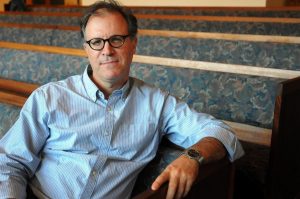SEPTEMBER
What Makes a Great Jewish Leader? Theodor Herzl and the Origins of Zionism
Thursday, September 10
7:30 p.m.
Virtual Event
Featuring Derek Penslar, William Lee Frost Professor of Jewish History at Harvard University
About This Event
From the prizewinning Jewish Lives series, a masterful new biography of Theodor Herzl by an eminent historian of Zionism
The life of Theodor Herzl (1860–1904) was as puzzling as it was brief. How did this cosmopolitan and assimilated European Jew become the leader of the Zionist movement? How could he be both an artist and a statesman, a rationalist and an aesthete, a stern moralist yet possessed of deep, and at times dark, passions? And why did scores of thousands of Jews, many of them from traditional, observant backgrounds, embrace Herzl as their leader?
Drawing on a vast body of Herzl’s personal, literary, and political writings, historian Derek Penslar shows that Herzl’s path to Zionism had as much to do with personal crises as it did with antisemitism. Once Herzl devoted himself to Zionism, Penslar shows, he distinguished himself as a consummate leader—possessed of indefatigable energy, organizational ability, and electrifying charisma. Herzl became a screen onto which Jews of his era could project their deepest needs and longings.
Cosponsored by the Maurice Greenberg Center for Judaic Studies at the University of Hartford.
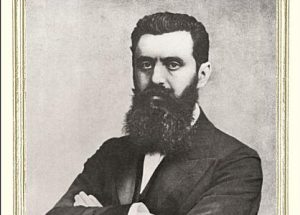
Anna Shternshis and Psoy Korolenko, Yiddish Glory: The Lost Songs of World War II
Monday, September 14
7:00 p.m.
Virtual Event
Anna Shternshis and Psoy Korolenko, Yiddish Glory: The Lost Songs of World War II
About This Event
Yiddish Glory tells the remarkable story of folklorists in the Soviet Union who risked their lives collecting songs from Jewish Red Army soldiers, Jewish refugees, victims and survivors of Ukrainian ghettos, as told by a band of virtuoso musicians.
This program is co-sponsored by the UCONN Center for Judaic Studies and Contemporary Jewish Life, Jewish Hartford European Roots, and the Maurice Greenberg Center for Judaic Studies at the University of Hartford
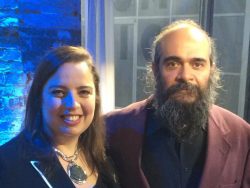
“Understanding and Teaching the Holocaust” – Virtual Book Launch
Wednesday, September 30
7:30 p.m.
Virtual Event
Understanding and Teaching the Holocaust by Laura Hilton and Avinoam Patt book launch
Part one of the Holocaust Educators Workshop – an Occasional Series of Events
About This Event
Few topics in modern history draw the attention that the Holocaust does. The Shoah has become synonymous with unspeakable atrocity and unbearable suffering. Yet it has also been used to teach tolerance, empathy, resistance, and hope. Understanding and Teaching the Holocaust provides a starting point for teachers in many disciplines to illuminate this crucial event in world history for students. Using a vast array of source materials—from literature and film to survivor testimonies and interviews—the contributors demonstrate how to guide students through these sensitive and painful subjects within their specific historical and social contexts.
The virtual book launch on September 30 @ 7pm will feature remarks by many of the volume’s twenty contributors, including local scholars and educators Avinoam Patt (UConn), Alan Marcus (UConn), Stuart Abrams (Avon High School) and more.
This program is co-sponsored by the UCONN Center for Judaic Studies and Contemporary Jewish Life and the Maurice Greenberg Center for Judaic Studies at the University of Hartford
Virtual Holocaust Educators Workshop 2020 - This workshop is usually held on the last Monday of October. This year instead of one day of professional development, the workshop is being offered as “an Occasional Series of Events” delivered in a virtual manner.
Registration for Understanding and Teaching the Holocaust, 9/30/2020
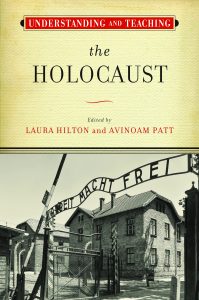
OCTOBER
David Lazerson, a.k.a. Dr. Laz, on African American – Jewish American Relations
Tuesday, October 13
7:30 p.m.
Virtual Event
Come and meet David Lazerson, the founder of the Communication, Understanding, Respect, Education project (CURE)
About This Event
Just weeks after the Crown Heights race riots in 1991, Dr. Laz was selected by the Mayor of
New York to be the liaison from the orthodox & Hassidic community to work alongside
leaders from the African-American community. He was selected because of his already
significant accomplishments breaking down stereotypes and barriers within this
community. He and his counterparts created Project CURE - a racial harmony group, and
what they were able to accomplish was nothing short of extraordinary. Starting with
“dialogues for understanding,” Project CURE soon grew into a major force for positive
change on a local and global level. Under Dr. Laz’s leadership, CURE got the NY Knicks to
dedicate one night a year to racial harmony and his racially mixed CURE basketball team
played during halftime for several years. CURE has won nearly every major civic award,
including the Mother Hale award, the Dr. Martin Luther King, Jr. Fulfilling the Dream award,
the NY Foundation Peace award, and the John Lindsay award.
Read more about CURE and their director [here].
This event is co-sponsored by UConn Hillel.
Registration for Dr. Laz and Project C.U.R.E., 10/13/2020
Registration for Dr. Laz and Project C.U.R.E., 10/13/2020
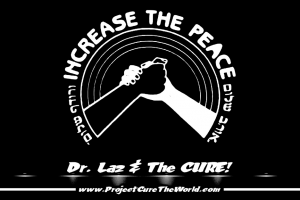
Lewis Gordon, Jane Gordon, Jonathan Judaken, and Kal Alston panel on anti-Black racism and Antisemitism in America
Thursday, October 15
7:30 p.m.
Virtual Event
About This Event
You are cordially invited to a virtual program on the location of Jews in conversations on racism with specific attention to the contemporary situation of anti-Black racism and anti-Jewish racism/antisemitism in America.
With Professor Lewis Gordon (UConn Philosophy), Jane Gordon (UConn Political Science), Jonathan Judaken (Rhodes College, History), and Kal Alston (Syracuse U., Education).
This event is co-sponsored by ALEPH, by the UConn Philosophy Dept., Africana Studies, and El Instituto.
Registration for African-American Jews in America 10/15/2020
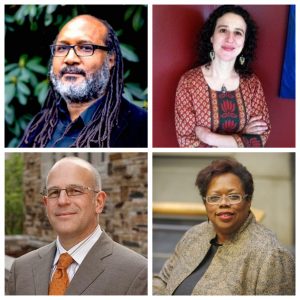
Berel Lang: Against the Lachrymose View of Jewish History
Wednesday, October 21
7:30 p.m.
Virtual Event
About This Event
Join us for the annual Gene and Georgia Mittelman Lecture in Judaic Studies!
About the Talk
The historian Salo Baron attacked the "lachrymose view of Jewish history" as mistakenly focused on events or practices of persecution and violence in that history--at the same time providing strong evidence that still more basic factors shaped the history of Jewish flourishing and survival. But the same lachrymose view still dominates current popular Jewish understanding, and this has severe, even dangerous practical consequences.
About the Speaker
Dr. Berel Lang, Professor of Philosophy Emeritus at the State University of New York, Albany, is the author of twelve books, including Writing and the Moral Self, Act and Idea in the Nazi Genocide, The Anatomy of Philosophical Style, Writing and the Holocaust, and Primo Levi: The Matter of a Life. He has been visiting Professor at the Hebrew University, the University of Connecticut, and Wesleyan University.
Registration for Berel Lang, 10/21/2020
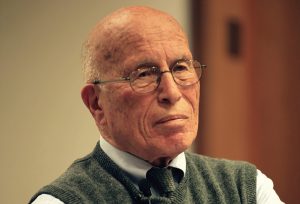
Virtual Holocaust Educators Workshop – Part II
Monday, October 26
4:00 - 6:00 p.m.
Virtual Event
About This Event
Part two of the Holocaust Educators Workshop – an Occasional Series of Events
Connecticut Remembers the Holocaust website launch and virtual tour with Liz Devine and Tracey Wilson
The Hartford Remembers the Holocaust exhibit at the Museum of Jewish Civilization, Univ. of Hartford, introduces visitors to the history of the Holocaust through the experiences of Holocaust survivors who settled in our community, rebuilding their lives in America after the trauma of World War II. Through their lives and their memories, we can learn the importance of preserving the past to build a better future and the role that all of us can play in building a society dedicated to mutual understanding and respect that celebrates diversity and cares for others.
Join us for the launch of a new website dedicated to the online exhibit, featuring curricular materials designed for classroom use (online and in-person) with master educators Liz Devine and Tracey Wilson.
This course is co-sponsored by: The University of Connecticut Center for Judaic Studies and Contemporary Jewish Life, The University of Hartford Maurice Greenberg Center for Jewish Studies, The Jewish Graduate Study Program, and Aleph: The Institute of Jewish Ideas.
Registration for Virtual Holocaust Educators Workshop – Part II, 10/26/2020
Understanding and Teaching the Holocaust by Laura Hilton and Avinoam Patt book launch
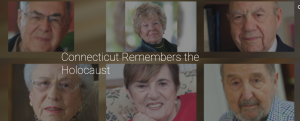
NOVEMBER
Virtual Holocaust Educators Workshop – Part III
Monday, November 9
7:30 p.m.
Virtual Event
About This Event
Part Three of the Virtual Holocaust Educators Workshop
In commemoration of Kristallnacht and the closing session of a course on the Past, Present, and Future of Antisemitism
With Professors Deena Grant, Jonathan Elukin and Avinoam Patt.
The event is made possible in part by the UConn Center for Judaic Studies Frances and Irving Seliger Memorial Endowment Fund
This course is co-sponsored by: The University of Connecticut Center for Judaic Studies and Contemporary Jewish Life, The University of Hartford Maurice Greenberg Center for Jewish Studies, The Jewish Graduate Study Program, and Aleph: The Institute of Jewish Ideas.
Registration for Virtual Holocaust Educators Workshop – Part III, 11/09/2020
Understanding and Teaching the Holocaust by Laura Hilton and Avinoam Patt book launch
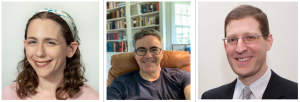
HaYehudim Ba’im – The Jewish Humor Lecture
Wednesday, November 11
11:30 a.m.
Virtual Event
With Natalie Marcus and Asaf Beizer
About This Event
HaYehudim Baim - The Jews Are Coming!
The Jewish Humor Lecture, or: The YidLife Crisis
With Natalie Marcus and Asaf Beizer
The Jews are Coming (Hayehudim Ba'im) is an Israeli sketch comedy satirical TV show that has aired for four seasons since 2015 on Israel's main TV network (Channel 1; KAN). Each episode consists of several sketches on subjects ranging from Biblical "midrashim," reinterpretations of Zionist and Israeli history, and tributes to great moments in Jewish history. The cast features such well-known actors as Moni Moshonov, Ido Mosseri, Yossi Marshak, Yaniv Biton, and Yael Sharoni. The show's creators and lead writers, Natalie Marcus and Asaf Beizer, will join us for a virtual discussion of their hit show and their one-of-a-kind contribution to Israeli and Jewish humor. The program will include clips and commentary on some of their favorite sketches from the show.
HaYehudim Ba’im – The Jewish Humor Lecture 11/11
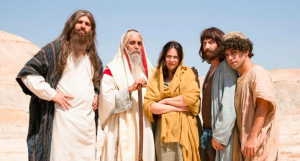
Josh Lambert on Jews and Comic Books
Monday, November 16
7:30 p.m.
Virtual Event
About This Event
Title: @#$%&*! Jews: From the Comics Page to the Graphic Novel
Josh Lambert is the Sophia Moses Robison Associate Professor of Jewish Studies and English, and Director of the Jewish Studies Program, at Wellesley College will discuss why Jews were crucial figures in the history of comics and graphic novels in the United States since the very beginnings of the form, and they saw comics as an opportunity to reject the stereotypes offered up in anti-Semitic cartoons. How have artists represented Jews and Jewishness in cartoon form, and what do these cartoons teach us about Jews' experiences?
Josh Lambert is the author of American Jewish Fiction: A JPS Guide (2009) and Unclean Lips: Obscenity, Jews, and American Culture (2014), which received a Jordan Schnitzer Book Award from the Association of Jewish Studies. His reviews and essays have been published by the New York Times Book Review, the Los Angeles Times, the Los Angeles Review of Books, Haaretz, Tablet, the Forward, New England Public Radio, and many other publications.
Cosponsored by the Maurice Greenberg Center for Judaic Studies at the University of Hartford.
Registration for Josh Lambert on Jews and Comic Books, 11/16/2020
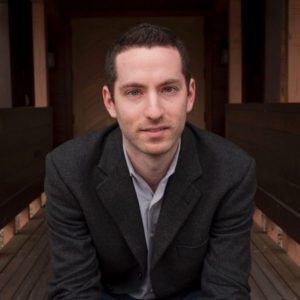
Susan Einbinder on Plague & Prayer – Jewish Responses to the Great Italian Plague
Wednesday, November 18
7:00 p.m.
Virtual Event
About This Event
About the Speaker
Susan Einbinder, professor of Hebrew and Judaic Studies and Comparative Literature at the University of Connecticut is a leading scholar on medieval French Jewish literature, and the the author of two monographs on medieval French Jews, Beautiful Death: Jewish Poetry and Martyrdom from Medieval France (Princeton 2002) and No Place of Rest: Literature, Expulsion and the Memory of Medieval France (Philadelphia 2008). Most recently, she published After the Black Death: Plague and Commemoration Among Iberian Jews (University of Pennsylvania Press, 2018). In After the Black Death, Susan L. Einbinder uncovers Jewish responses to plague and violence in fourteenth-century Provence and Iberia. Einbinder's original research reveals a wide, heterogeneous series of Jewish literary responses to the plague, including Sephardic liturgical poetry; a medical tractate written by the Jewish physician Abraham Caslari; epitaphs inscribed on the tombstones of twenty-eight Jewish plague victims once buried in Toledo; and a heretofore unstudied liturgical lament written by Moses Nathan, a survivor of an anti-Jewish massacre that occurred in Tàrrega, Catalonia, in 1348.
About her Latest Publication
Through elegant translations and masterful readings, After the Black Death exposes the great diversity in Jewish experiences of the plague, shaped as they were by convention, geography, epidemiology, and politics. Most critically, Einbinder traces the continuity of faith, language, and meaning through the years of the plague and its aftermath. Both before and after the Black Death, Jewish texts that deal with tragedy privilege the communal over the personal and affirm resilience over victimhood. Combined with archival and archaeological testimony, these texts ask us to think deeply about the men and women, sometimes perpetrators as well as victims, who confronted the Black Death. As devastating as the Black Death was, it did not shatter the modes of expression and explanation of those who survived it—a discovery that challenges the applicability of modern trauma theory to the medieval context.
Registration for Susan Einbinder on Jews and Plagues 11/18/2020
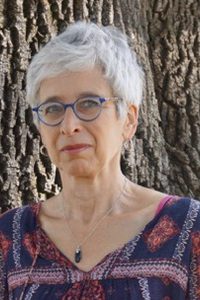
Virtual Holocaust Educators Workshop – Part IV
Thursday, November 19
7:30 p.m.
Virtual Event
About This Event
Part Four of the Holocaust Educators Workshop – an Occasional Series of Events
Amy Weiss, New Director of the Greenberg Center for Judaic Studies, University of Hartford (January 2021) will address the topic of American Jews and Holocaust Memory: American Responses to the Holocaust.
This course is co-sponsored by: The University of Connecticut Center for Judaic Studies and Contemporary Jewish Life, The University of Hartford Maurice Greenberg Center for Jewish Studies, The Jewish Graduate Study Program, and Aleph: The Institute of Jewish Ideas.
Registration for Virtual Holocaust Educators Workshop – Part IV, 11/19/2020
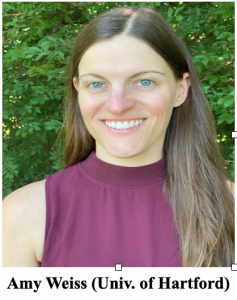
Ilan Stavans: What Remains
Monday, November 30
7:30 p.m.
Virtual Event
About This Event
What Remains [SUNY Press, July 2020]
Combining photography and essay, Ilan Stavans presents a speculative portrait of a Jewish immigrant living out the end of his days in New York’s midcentury mental health system.
After the closure of Willard Psychiatric Center on New York’s Seneca Lake in 1995, more than four hundred abandoned suitcases were discovered in its attic, containing thousands of personal possessions belonging to former patients. Three of the suitcases were owned by Charles F., an eighty-four-year-old Russian Jewish immigrant arrested at a Brooklyn subway station in 1946 and institutionalized at Willard State Hospital (as it was then known).
An extraordinary collaboration between image and text, What Remains pairs Jon Crispin’s gripping photographs of Charles’s belongings with Ilan Stavans’s intriguing, speculative portrait of a patient and institution at odds with one another. Anxious, isolated, and senile, Charles strikes an unexpected friendship with a young doctor whose empathy accompanies him through a sudden spiritual awakening. As the narrative unfolds, it becomes clear that Stavans, himself an immigrant from Mexico whose family history is marked by bouts of mental illness, approaches his character as a surrogate of his own personal journey. Crispin’s photographs of Charles’s possessions—including clothing, household tools, and Jewish ritual objects—are haunting in their ability to compel the reader to imagine a distant man’s life. A moving blend of fact and fiction, photography and prose, What Remains reflects on questions of mental health, spirituality, and the Jewish immigrant experience in midcentury America.
Ilan Stavans is Lewis-Sebring Professor of Humanities and Latin American and Latino Culture at Amherst College and the author of many books, including Borges, the Jew and On Self-Translation: Meditations on Language, both also published by SUNY Press.
Registration for Ilan Stavans: What Remains | 11/30
